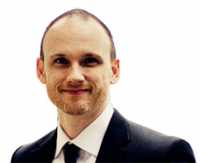29 Apr Scientists Rejuvenate Old Stem Cells With Common Vitamin
MedicalResearch.com Interview with:

Dr. Keir Menzies
Keir Menzies PhD
Assistant Professor
University of Ottawa Brain and Mind Research Institute
University of Ottawa
MedicalResearch.com: What is the background for this study? What are the main findings?
Dr. Menzies: Currently there is significant amount of research identifying the power of stem cells to regenerate damaged or aging tissue. Our research discovered that reduced stem cell health was linked to unusually low levels of a small molecule called NAD, one of the most important cellular molecules to maintain the performance of mitochondria, the engine of the cell. Then by boosting NAD levels, using a special form of vitamin B3 called nicotinamide riboside, stem cells could be rejuvenated during aging by improving mitochondrial function. We then go on to show that by improving stem cell function we could prolong the lifespan of mice, even when the treatment began at a relatively old age.
MedicalResearch.com: What should readers take away from your report?
Dr. Menzies: Our research focuses on a biological pathway important for improving energy production in the existing stem cells of a body. We show that treatments which focus on NAD boosting have the capacity to rejuvenate old stem cells by resuscitating their mitochondria. This treatment has the potential to advance the ability of a stem cell, particularly old stem cells, to aid in the regeneration of damaged tissue in a myriad of diseases including muscular dystrophy, liver or kidney disease, and neurological disorders such as Alzheimer’s and Parkinson’s disease.
MedicalResearch.com: Thank you for your contribution to the MedicalResearch.com community.
Citation:
Hongbo Zhang, Dongryeol Ryu, Yibo Wu, Karim Gariani, Xu Wang, Peiling Luan, Davide D’amico, Eduardo R. Ropelle, Matthias P. Lutolf, Ruedi Aebersold, Kristina Schoonjans, Keir J. Menzies, Johan Auwerx. NAD repletion improves mitochondrial and stem cell function and enhances lifespan in mice.
Science, 2016 DOI: 10.1126/science.aaf2693
Note: Content is Not intended as medical advice. Please consult your health care provider regarding your specific medical condition and questions.
More Medical Research Interviews on MedicalResearch.com
[wysija_form id=”5″]
Last Updated on April 29, 2016 by Marie Benz MD FAAD
